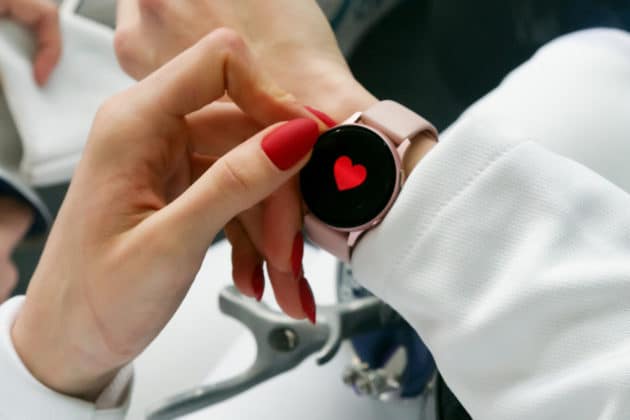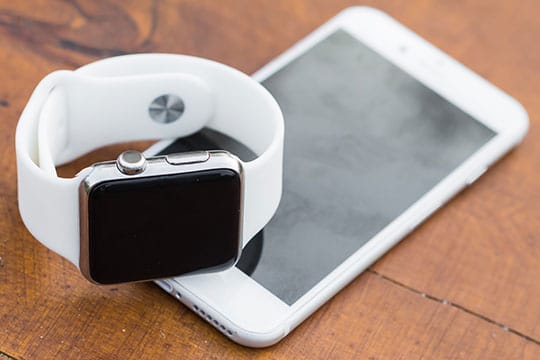Wearable tech is revolutionizing healthcare technology and the common man has immensely benefited from it. Breakthrough advancement in healthcare technology and scientific innovations has made us possible for us to use wearable healthcare gadgets. These healthcare devices range from smartphones to smartwatches and everything in between. It encompasses a wide field of applications like fitness trackers, monitoring heart rate, estimating blood sugar levels, ascertaining sleep patterns, and many such things.
Wearable healthcare tech devices can gather medical data and even save precious lives when it matters the most. Wearable healthcare technology delivers healthcare to the patients in the most amazing ways. It saves a lot of time for regular check-ups, and patients are also able to detect abnormalities in their body functions and report them to the concerned medical practitioner without actually going to visit them. There are so many examples where wearable tech comes in handy.
What is a wearable tech healthcare device?

A wearable device is a healthcare tool that users can wear. These are electronic devices like smartwatches and activity wrist bands that have sensors that track heart rates, calories, sleep patterns, steps, and gather real-time data of the user, and send it to the app. The app then shows this data to the users, and they can monitor their health in the app.
Benefits of wearable devices

Let’s find out the benefits of wearable tech healthcare devices…
Recommended for you: 7 Coolest Wearable Tech Gadgets Making an Impact.
Sync with apps
Wearable tech devices sync data to the smartphone. This data is stored, and users can view reports on the smartphone itself. These reports highlight areas of health that need improvement. It also alerts users about possible critical values of health, and users can show it to a healthcare professional. This way, the symptoms can be reduced by the timely intervention of the medical professional.
Empowering people
Wearable healthcare devices can track, monitor, and detect abnormal body functions. It collects data and patients can monitor their health for themselves in an instant. It empowers people and makes them control their health. Precise measurements and accurate readings can be accessed easily and this, in turn, keeps the patient and their doctors informed all the time. Tracking vital body parameters can help doctors assess their patients too.
Change in perception of fitness
Wearable healthcare gadgets have made people more aware of their fitness and developed a fresh approach to how they value their fitness. People have started to redefine their fitness goals by using these wearable health gadgets. Fitness bands and other wearable devices allow users to make fitness goals and accomplish them. They get reward points and bonus tips as to improving their fitness. These small steps act as an incentive to stick to maintaining a fitness regime.
Real-time data
Wearable health devices gather real-time data as it takes place. Wearable smartwatches and fitness bands count the steps, track heart rates, calories used. Users can have a history of their health over a period of time and can produce it as proof of their activities. Apps that are connected to these devices can be freely downloaded. Users can then set longer-term fitness goals and try to improve their health. They can compare their previous goal and track their health parameters so that they can keep a regular track of their health status.
Stress management
Wearable health devices help to combat stress, which is the main reason for so many modern-day illnesses and medical conditions. Diabetes, anxiety disorders, obesity are all linked to some extent to stress. Wearable tech gadgets can detect stress levels and prompt the users through apps if stress levels remain high. These apps get linked to the wearable device, and the data that the device sends to the app can tell the user of their stress levels. They can control their anxiety, have better sleep, and be more peaceful by using such wearable health gadgets.
Made for a specific medical condition
Wearable tech devices are being made for specific medical conditions. For example, a wireless blood pressure monitor measures blood pressure and helps in maintaining blood pressure. Wearable devices like activity trackers help regulate daily activities and enable users to cultivate a healthy lifestyle. Apps are developed for stress and monitor sleep quality. As sleep quality improves the overall health also improves. These apps and wearable devices target a specific condition.
Variety of ways to wear a wearable device

Wearable tech healthcare devices come in a variety of forms. Some can be worn on wrists, and others can be worn like watches or bands. Sensors can be embedded in clothing, and biosensor patches can be worn on the skin. Yet others can be worn on shoes, gloves, earrings, eyeglasses, cars, mattresses, etc. These wearable devices have advanced algorithms, gyroscopes, video recorders, accelerometers, that can monitor physical activity, walking gait, pulse rates, sleep patterns, and many other things.
Examples of wearable devices

Wearable devices in today’s world, are getting increasingly popular. These come in all forms and styles such as the ones given below.
You may like: Future of eCommerce Apps for the Health, Fitness & Nutrition Industry.
Smart Bras
Sensors that are embedded in smart bras can directly monitor the electrocardiogram of the user. It constantly tracks the heart rate and incorrect body posture. Smart Bra is now being developed to pick up early signs of breast cancer. Using light and sound signals, the smart bra will monitor temperature changes, and motion abnormalities in people.
Smart Contact Lenses
Smart Contact Lenses have completed trials on rabbits and its future seems bright. It can detect glucose levels in tears and help in measuring eye pressure and changes in the cornea, which may prove to impair vision and harm the eyes.
Smart Fabrics
Smart fabrics can be worn by the user, and it uses biometric technology to monitor the health of the user. Sensors are installed in the fabric weave and these monitor physical activity in real-time. This technology is used in physiotherapy and sports fashion. Artificial intelligence and special computers are used to process specific data. Users can enhance their sports performance and ability to build their muscle mass.
Wearable Fitness Trackers
Wearable fitness trackers come in the form of wristband devices. They come with hi-tech biometric sensors that track heart rate and physical activity. Gadgets like Fitbit have become so popular due to their capacity to do a range of functions. They also track breathing and are synced to a mobile app, where data is sent. They have GPS, stress monitor, sleep timer, etc.
“Many of us like to use Fitbit and other health-related technology. What you may not know, if you allow insurance carriers to monitor your daily activities, you can save money on your life insurance premiums. The discounts may seem small at first, but over time, they can be significant.” – as explained by Matt Schmidt in one of his recent blog posts where he talked about type 2 diabetes life insurance.

Wearable ECG Monitor
Wearable ECG Monitors measure electrocardiograms of the user and send the data back to the doctor. It is also used to track daily activities like cycling, walking, running, swimming, pace, speed, etc.
Wearable Blood Pressure Monitors
The Wearable Blood Pressure Monitor may look like a smartwatch, but its use is so much more beneficial than just to showtime. It measures blood pressure and also has other functions that are typical in a wearable tech device. Users can track their calories burned, distance traveled, daily steps, etc. Users can share their blood pressure readings with their doctors and can judge activities that help in reducing high blood pressure.
Wearable Biosensors
Biosensors are not like the smartwatch or wristbands. It is a sort of patch that the users can wear and move around with ease. It allows them to collect vital data relating to heart rate, respiratory rate, temperature, etc. Data collected through this smart patch can prevent patients from getting a stroke, heart attack, or respiratory attack.
Smartwatches
Smartwatches let users read notifications, send messages, make phone calls, and do many other things. That is, apart from monitoring heart rhythms can maintain a clinical profile of the user. The apps that come with these smartwatches can maintain the health history of the user. These smartwatches like Fitbit have a range of health tracking benefits and offer many functions like pedometer, count steps, calories, heart rate, pulse rate, sleep. These smartwatches are waterproof and are good for swimmers.
Breath Analyzers
Oral health is a matter that is increasingly making a serious impact on overall health. Health analyzers can track oral health by analyzing the breath of people. It can detect alcohol consumption, which is the main cause of cancer, and so many deadly diseases relating to the liver and kidneys.
You may also like: Inventive Automation in the Healthcare Industry – Tech Tools to Invest in Healthcare Startups.
Concluding Thoughts

While it is no doubt that wearable tech healthcare devices are going to make rapid inroads into our daily lives. Their benefits are great and so is the value that they bring into our lives. They will improve the quality of our lives in the future, and we cannot only monitor our health but will also be able to make decisions regarding a health issue.
Healthcare technology is advancing at a great pace and advancements in scientific innovation and medical technology will redefine the healthcare industry. The result is seen today, as more and more people are going for these smartwatches and fitness tracking devices. It will only increase in their popularity and better health and fitness levels of the people.





